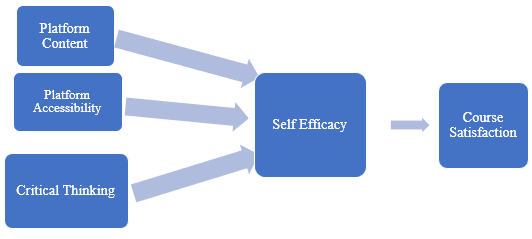Relationship between Self–Efficacy and Student Psychology in Blended Learning Courses
Main Article Content
Abstract
Higher education institutions have a growing desire to find new approaches to improving education quality, increasing student participation, and better managing information resources. Educational institutions are adopting blended learning as a result of technological advancements, which have a significant influence on educational outcomes. We're here to talk about how a blended course deployed in a "Management" course at a university improved student satisfaction. In specifically, we are interested in LMS characteristics that influence the LMS's self-efficacy and the effect they have on learner satisfaction. Self-efficacy in the learning management system (LMS) was shown to have a beneficial influence on learners' satisfaction with their education. Additional factors that influence LMS self-efficacy include the system's content, its usability, and its components that promote the development of critical thinking.

